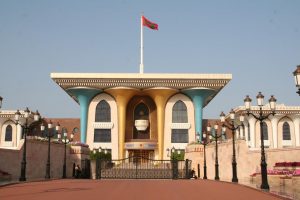
Media reports in Oman indicate that the government in Muscat is reexamining the feasibility of acquiring a national communications satellite to serve broad Omani telecommunications needs.
Dr. Ahmed bin Mohammed bin Salim al Futaisi, Oman’s Minister of Transport and Communications, said that the government is developing a range of studies and a number of specialized committees for the revived satellite communications project. The Minister added that the government must consider the diverse needs of the Omani telecommunications sector. For now, the Minister suggested, the focus is no how a satellite will fit in to the wider telecommunications strategy, and details of the satellite project’s implementation, operations, and financing will be considered should it be determined that there is a need for such a system.
The announcement by Minister Al Futaisi revives the dormant OmanSat project that was put on hold in 2010, on the eve of the Oman government signing an agreement that was thought to be worth up to U.S.$ 1 billion to acquire a satellite communications system. At the time the German telecommunications consulting company Audens conducted a large study for the Oman government that laid out a business case and acquisition strategy for the proposed OmanSat, and it is believed that Audens has been retained for the revived project.
It is not known whether the revived project retains the name of OmanSat, but as before in 2010 the Ministry of Transport and Communications and the Ministry of Information in Muscat are the lead government departments for the satellite project.
Unlike its other Gulf Cooperation Council (GCC) partners, Oman does not have the large cash reserves that make a satellite project readily affordable. As a result, for the government in Muscat to revive the project at this stage when the regional economic outlook is uncertain at best suggests that the satellite project, as part of a wider national telecommunications strategy, is seen as a means to boost and modernise critical infrastructure in Oman. In turn, it is hoped that this telecommunications modernisation will increase Oman’s economic capacity and prospects.
Original published at: http://spacewatchme.com/2016/10/oman-government-giving-national-communications-satellite-fresh-look/
 SpaceWatch.Global An independent perspective on space
SpaceWatch.Global An independent perspective on space

